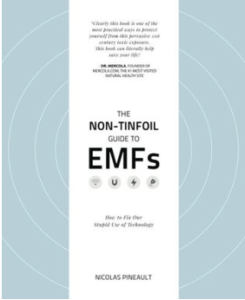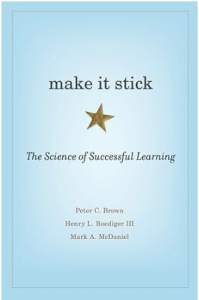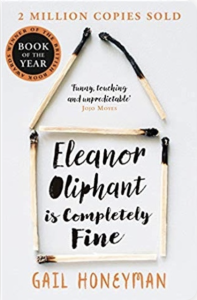C.A. Gray's Blog, page 10
March 22, 2024
Review of The Non-Tinfoil Guide to EMF

I’ve read at least four books on EMF that I can think of now, and this is by far the best. I picked it up because most of the blogs I’d read said the same thing. It’s straightforward, accessible, and practical, assuming the reader is a consumer and not an electrician.
I like the fact that the author is up front about the fact that he’s in the same boat: he’s a science writer who’s done an enormous amount of research on the subject, and interviewed numerous experts. After reading, taking notes, and reading my notes, and then trying to apply what I had read, I felt like I could take my $150 Gauss meter purchased on Amazon and actually glean some usable information on my environment and what I could do to make it safer, without going overboard and upending my whole life (as the title implies).
What bothers me is that most of the authors I read and experts I’ve talked to on this subject seem to disagree with one another on one or more points. Nick does acknowledge that where he can, and gives both sides of the argument so that the reader can draw his or her own conclusions. I guess in any other area of medicine that’s true too, it’s just that in the realm of biochemistry, I have enough of a foundation that I can draw my own conclusions without having to rely on anyone else. In the realm of electricity I don’t know enough to do that with a great deal of confidence, and it’s still such a controversial topic. So I can’t say I feel like I know *enough* after reading this book. But I do feel like I know a lot more than I did before I started, and I feel less overwhelmed about what to do about it.
My rating: *****
Language: none
Sexual content: none
Political content: none
Violence: none
The post Review of The Non-Tinfoil Guide to EMF appeared first on C.A. Gray.
March 15, 2024
Review of Of Beast and Beauty

The title led me to believe this would be a retelling of Beauty and the Beast, which it really wasn’t. There were far too many departures to the original story, though there were a few nods to it… like, there was a beast, though while the male lead does transform into a werewolf, it’s not him. There was a rose pin referred to on numerous occasions. And while the protagonist is beautiful and captive, it’s not at all for the reasons in the original story. All of these departures were enough to keep my interest for 3/4 of the story, though by the last 1/4 I had to speed it up to 2.0 speed just to get through the last of it.
The protagonist, Rosalie, is a mage, and she’s feared for that reason in a kingdom that doesn’t understand magic and therefore fears it (a very, very common trope in YA fiction I’ve found). She was betrothed to Prince Xander because of a curse from her mage mother, and he hates her for it and locks her away… only she disguises herself to be able to leave her cell, and he falls in love with her in the process. The rest kind of blurred together… there was a beast killing people in the kingdom, and Rosalie makes a deal with Xander that she will help to banish the beast and then leave. There’s a whole lot about Rosalie’s magical sisters and mirrors and her powers and her real parents and other various side-plots. When she tries to make good on this promise at the end, she vanishes, and there is a Cinderella-esque hunt for her throughout the land. She and Prince Xander have a gag-worthy reunion at the end with all kinds of undying love declarations, of course. (Maybe I’m reading the wrong genre?) And then there’s a setup for a sequel I won’t be reading…
The characters were decently done, though, and there was just enough fresh and new that it kept me reading until the end. And it was clean.
My rating: ** 1/2
Language: none
Sexual content: none
Violence: none
Political content: none
The post Review of Of Beast and Beauty appeared first on C.A. Gray.
March 8, 2024
Review of I Was Anastasia

Based on the creativity and prose of the book, I’d give it 5 stars. Based on my enjoyment of it, I’d give it three… so I’m splitting the difference.
I have been fascinated by the story of Anastasia, especially since I saw the musical rendition. I didn’t really know a great deal about the actual history though, only the legends that Princess Anastasia might have escaped with her life while the rest of her family was executed during the Bolshevik Revolution. The musical version was very much like if the story had been turned into a Disney princess movie. I think that’s what I thought I was getting.
…Not so much. This was a creative retelling, based on the claims of Anna Anderson, whom I gather was the most convincing if not the only person who claimed to be Princess Anastasia, post-assassination attempt. But it was told in a very creative way: Anna’s story is told backwards, from when she is in her 70s at the beginning of the story, all the way until she is in her 20s at the end of the story. In alternate chapters, Anastasia’s story is told in chronological order, beginning from a few months prior to the family’s execution. I should have anticipated that this would mean it would get gruesome at the end, and I did to a point, but… not to this extent. At the end of the book, there’s rape (shown in a fade-to-black kind of way, but still), torture, attempted suicide, and a long drawn out murder scene. Definitely not my usual reading fare, and had I not already been 85% through the book before I hit all of that, I definitely would have stopped reading. But by then, I really wanted to know… were Anna and Anastasia the same person? The book was set up to really make it seem like the answer had to be yes…
It was very compellingly written, and the prose was so gorgeous that I highlighted numerous character descriptions and put them in my character notebook for future reference. Even so, I don’t know if I could actually recommend the book, unless the reader has a stronger stomach than I do.
My rating: ****
Language: I think there was some? Can’t recall
Violence: TONS. It’s dreadful.
Sexual content: there’s rape, in a fade-to-black way but it’s still quite disturbing.
Political content: none (historical only)
The post Review of I Was Anastasia appeared first on C.A. Gray.
March 1, 2024
The Invisible Rainbow

This was incredibly comprehensive and thought-provoking.
I had tried to read it once before, got bored, and given up. Then a podcast guest whom I admired recommended it, so I thought I should give it another go. And wow, am I glad I did.
EMF is something that has been on my radar (no pun intended) on and off for quite some time as a possible underlying cause of chronic illness… the problem is, the symptoms of it are so non-specific, and it’s everywhere. How can you nail down that EMF is the cause? And if you can, what can you really do about it? Whenever I have patients who are the “canaries in the coal mine” who don’t get better from treating solvents, mold, Lyme, chronic infections, hormone balancing, etc, I come back to this, ask the same questions yet again, and let it alone.
What I found so fascinating about Firstenberg’s approach was that he was so systematic about it, and also that he correlates pandemics past with huge advances in electromagnetic communications. I had no idea, for instance, that flu never used to be a yearly phenomenon, but only once every few decades… and when it did occur prior to the 19th century, it always coincided with sun flares (which occur every 11 years or so, but even then with variable intensity). I’d heard what I’d have called “conspiracy theorists” correlate historical pandemics with such technological advancements, but I had no idea that there was any concrete data to back up the claim. I don’t entirely know what to do with this information, other than to say that at the least, it appears that there has been a vast amount of data to link EMF with human disease for many years.
Then he goes on to correlate EMF with heart disease, cancer, diabetes, and other major diseases of modern life. Correlation is not causation, but I have to say that the timing and data he presents of correlation in those numbers are quite compelling.
I am still left with the “okay, now what?” question, unfortunately… because it truly is everywhere, and he makes this point at the end of the book, which must have come out in late 2019, that by 2020 satellite coverage will extend everywhere except the Arctic Circle and Antarctica, and some coverage will extend even there. He ended with a call to action that we must attempt to stop forward progress. But how do you put the genie back in the bottle?
My rating: *****
Language: none
Sexual content: none
Violence: none
Political content: none
The post The Invisible Rainbow appeared first on C.A. Gray.
February 20, 2024
Take Me Home

I love Beth Moran books, even if they do follow a predictable formula. I wouldn’t have known that if I hadn’t read so many of her books, but they are still enjoyable.
The formula is this: an early 30-something woman, down and out for one reason or another, moves to Sherwood Forest (always there), trying to pick up the pieces of her life. She is there to work for a quirky, lovable older woman who becomes a surrogate mother figure for her, but who later gets diagnosed with a terminal disease, which becomes a big part of the plot. While there, said protagonist also finds herself immersed in a group of multigenerational women–a club, a church group, a community, or in the case of this book, a support group–where she slowly begins to thaw out her frozen heart and learn to care about other people again after having been badly hurt. Also, at the very outset, a gorgeous man appears. He’s just a teaser throughout most of the book, though constantly in the protagonist’s mind. As time goes on, though, she begins to open up to the possibility of him too… but, then, there’s a misunderstanding. (I HATE this part. Misunderstandings make me anxious in real life, so I do not enjoy the trope in fiction at all, either. I usually just have to grit my teeth and get through it.) In this case I saw it coming a mile away… fortunately when it happened, it was resolved relatively quickly.
The particulars of this story: Sophie was a florist who did wedding flowers as a hobby, and was planning the flowers for her sister’s wedding, when her sister and both parents were suddenly killed in a car crash. She has nothing, and then because she lost so much herself, she finds herself inadvertently in a business in which she helps bereaved families as they sort out the pieces of the live of a loved one. In this capacity, Hattie, an art therapist in Sherwood Forest, hires her to help her sort out her affairs while she’s still (ostensibly) young and healthy… only she has some strange caveats. Sophie is required to sign a non-disclosure agreement, and forced to lie about the reason for her presence there, claiming she is an historical author hired to write the details of Hattie’s life. This becomes especially difficult when Sophie meets and falls instantly in love with Gideon, the young caretaker for Hattie’s grounds who also is (she thinks) Hattie’s cousin. She’s forced to lie to him about what she’s doing there from the word go… and you can see how that’s likely to go awry.
Still, though they follow a very clear formula, Beth Moran’s books are always feel-good and focused on the importance of love of all types, and relationships.
My rating: ****
Language: none
Sexual content: none
Violence: none
Political content: none
The post Take Me Home appeared first on C.A. Gray.
February 15, 2024
Mere Christianity

I can’t believe I’ve never reviewed this before, as I’ve read it so many times… it’s been one of my favorites since probably my early teen years.
C.S. Lewis was so brilliant, and this is him at his best. He had a way of getting straight to the heart of a subject in as few words as possible, and putting it so succinctly that I at once say as I listen, “Ah ha! That’s exactly it!” He had a way with analogies too, and always seemed to choose just the perfect one to illustrate a concept. I don’t remember how old I was when I read this the first time, but I think I had studied apologetics from a scientific viewpoint already. I believe I wasn’t aware before this book that it was possible to leave scientific evidence aside entirely, and using only pure reason and philosophy, still arrive squarely at the conclusion that not only must there be a God, but He must be the God of the Bible, too. If any rebuttals to his reasoning exist, I’ve never read them.
Lewis is one of the people I’m looking forward to meeting in heaven. I’d like to have tea and the sort of breakfast with him that he describes in thorough detail in “The Lion, The Witch, and the Wardrobe,” sitting before a roaring fire.
My rating: *****
Language: none
Sexual content: none
Violence: none
Political content: none
The post Mere Christianity appeared first on C.A. Gray.
February 9, 2024
Make It Stick, Peter Brown

This is a really terrific overview of some research with which I was unfamiliar.
I have always rather suspected that just reading through or listening to material is not very useful in terms of active learning. I got through med school by a combination of reading and highlighting, but also retyping my notes and then rereading those. Still not the best according to this research. I did, when studying for boards, create intricate flow charts of various interconnected systems, though. That was apparently the most useful, as I was engaging with the information and synthesizing it in a new way.
I also realized that some of the ways I go about learning now are actually variations on what the book recommends. He mentions trying to summarize to yourself key points that are being made, restating them in your own words, and quizzing yourself on how certain elements work. I’ve long known that I learn best when I teach, and I often will teach by writing (blog posts, podcasts, etc) on a subject that I want to understand better myself.
I found the concept that learning deepens the harder you have to work to retrieve information very interesting also– similar to how you build muscle by lifting heavier weights, not weights that are so easy it takes little effort. Along those lines, you learn better if you intersperse learning different but related subjects, rather than drilling the same thing over and over ad nauseum.
A great summary of how to make sure we spend our time both learning and teaching as effectively as possible!
My rating: *****
Language: none
Sexual content: none
Violence: none
Political content: none
The post Make It Stick, Peter Brown appeared first on C.A. Gray.
February 2, 2024
Review of Sinking City

I picked this up because Brandon Sanderson gave it such a strong endorsement, and I’ve liked some of his books before. It certainly didn’t live up to the endorsement (“you must move it to the top of your TBR list now!”), but it wasn’t bad. There were moments I considered not finishing it though.
The story bounces back and forth between Zan and Ellie as point of view characters, in a fantastical world that reminded me intensely of whatever Twilight book it was that took place in Italy (since this takes place in Venice). They even reference Twilight at one point, I think. Zan and his clan are “skilled,” or have supernatural magical powers, and (like every story of the type) they keep their kind hidden from “typics,” or those who lack such powers.
Ellie is a typic, but she’s one in which the mafia-esque “skilled” families are intensely interested, for reasons that become clear as the story goes on. Zan is following her because of this, but as soon as they meet, sparks fly. I wasn’t really feeling the love story this time… I don’t know why. Maybe it just felt too stereotypical, and I didn’t really connect to any of the characters, for some reason I can’t identify.
The action was well-written. I don’t think I’ll be reading on in the series, though.
My rating: ***
Language: some, not overwhelming
Violence: some, but minor
Sexual content: alluded to but not on the page
Political content: none
The post Review of Sinking City appeared first on C.A. Gray.
January 26, 2024
Boundaries, Henry Cloud and John Townsend

This was my second time through this book; the first time was over a decade ago and I felt it changed my life then. I’ve recommended it to many patients since, but felt it was time to go back through it now.
For me, the biggest takeaway was the clear delineation between what is under my control, and what is not, and also what is my responsibility, and what is not. For me certainly, and I think for many others, the desires and demands of others seem like our responsibility to fulfill, but they are not, and putting this in so many words was very helpful. There are many examples of how this plays out, too, which drives the point home. We should (to the extent that we are able) extend a helping hand to those who are bearing a crushing burden that they cannot carry themselves–if we want to, can do so without a sense of obligation, and have the resources to do so. None of us can meet every single need that we become aware of, though, even if those needs are legitimate. At the same time, if someone else merely has a desire that they would like us to fulfill, or they don’t want to take responsibility for something that they are, in fact, responsible for, it’s not our job to accommodate those desires. We can if we choose to freely, and have the resources to do so, and aren’t making an entitled monster of the other person in the process, but we are each responsible for our own wishes, needs, plans, and desires. When those lines get blurred, relationship problems ensue.
Very insightful and very helpful, particularly, I think, for women in the church.
My rating: *****
Language: none
Sexual content: none
Violence: none
Political content: none
The post Boundaries, Henry Cloud and John Townsend appeared first on C.A. Gray.
January 19, 2024
Review of Eleanor Oliphant is Completely Fine

It’s hard for me to figure out how to rate this book, probably because it’s so far from my typical choice of reading material.
I can’t recall why I picked it up, but the narrative voice was what hooked me. Eleanor almost comes off like she has Asberger’s or something–she’s extremely articulate, and seems to have next to no concept of what’s expected of her socially. She’s also an unreliable narrator, judging others for having no social graces when in fact, she’s the one who erred. This was amusing, and I mostly just read to see what she’d say or do next, in a series of episodic events in her life tending (so it seemed) more or less toward nothing. For the first half of the book or so, she fixates upon a local front man from a band, deciding he’s the one, even though they’ve never met, and she objectively realizes that she’s not very attractive (having a burn on half of her face, though we won’t find out why for some time), while he’s gorgeous. She is undeterred, and goes about on a self-improvement scheme to make herself his equal to the best of her ability. Meanwhile, every Wednesday night she has a phone call with her Mummy, who is –somewhere, we’re not told where, but we’re led to believe it’s an institution of some kind. Mummy is very angry, and every phone call leaves Eleanor feeling awful and needing, so she believes, massive amounts of vodka, which she consumes every weekend, all weekend long.
Then, unusual things begin to happen. Eleanor finds herself befriended by Raymond, the IT specialist at her workplace, almost against her will. She and Raymond encounter an elderly man who collapses in the street, and they save his life, thus bringing him and his family into their circle as well.
As Eleanor’s fantasy toward the singer progresses, though, eventually she’s forced to confront reality. Spoiler alert: there’s a really disturbing attempted suicide scene, but it precipitates the second half of the book, where Eleanor learns what really happened in her past to give her the scar, and why her Mummy is the way she is. I saw most of this coming, but there’s a surprise twist about Mummy at the very end that helped explain the inconsistencies in her character that had previously really bothered me.
The subject matter is dark, but it’s handled in a hopeful way.
My rating: ***1/2
Language: it’s there, though not overwhelming
Sexual content: it’s there but mild
Violence: it’s there but not gratuitous
Political content: none that I can recall
The post Review of Eleanor Oliphant is Completely Fine appeared first on C.A. Gray.



